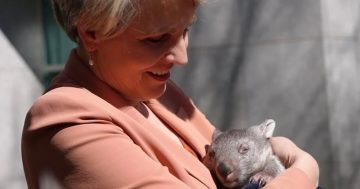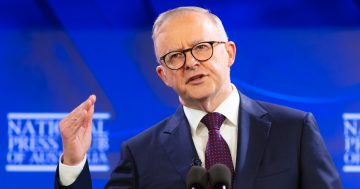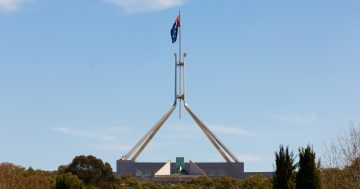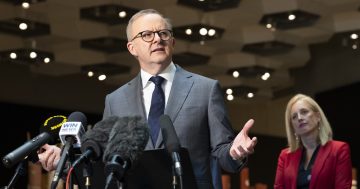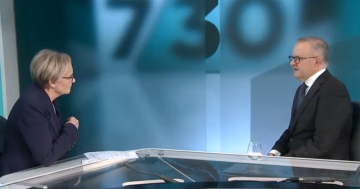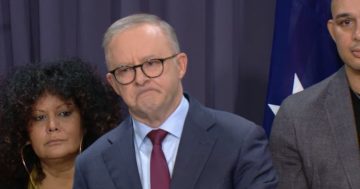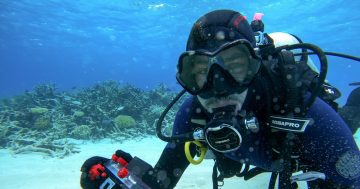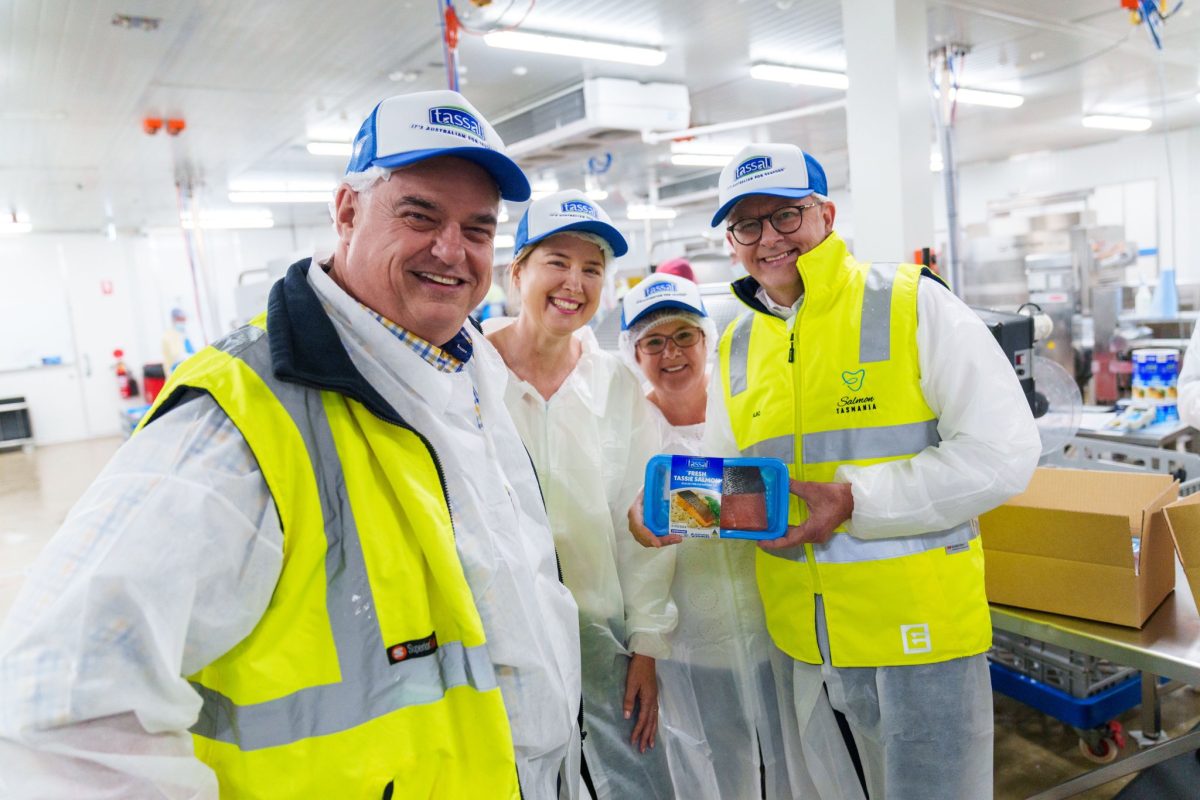
Anthony Albanese with workers at the Tassal salmon plant in Tasmania. It was all smiles … until he started answering questions. Photo: Julie Collins.
Anthony Albanese has spent a bit of time this week in Tasmania and, among other things, took a look at the salmon industry down there.
It was a good PR exercise for him as well as for the industry as he publicly acknowledged the “important role” the salmon industry plays in employing about 5000 people in “good, well-paid jobs”.
But the visit has presented a quandary for the Prime Minister and exposed a weakness in the Federal Government’s approach to the environment.
As it was put to him by one radio presenter on Thursday (18 January): “The Liberals are saying that you’re not guaranteeing salmon farming in Macquarie Harbour and the Greens are furious that you’ve appeared alongside Tassal in an industry they are saying is threatening the Maugean skate.”
The Maugean skate is a stingray whose natural habitat is estuarine waters and is endemic to Tasmania. It is only found in the brackish estuarine waters of Macquarie Harbour and Bathurst Harbour.
The PM was specifically asked for “no fence sitting here” and to either guarantee the farming in Macquarie Harbour or state that it could be banned if it’s the only way to save that highly endangered fish species.
But fence-sitting was the best the PM could muster.
“Well, we’re doing the right thing, aren’t we, if you’ve got the Liberals from one end and the Greens from another?” he answered.
“What I’ve said is those jobs are absolutely critical and we want to support the industry. We want to work on a win-win, not either/or… We agree that you want a sustainable industry, and you want the industry to continue. But you need to have proper environmental assessments according to the law.
“[That] is what [Environment Minister] Tanya Plibersek needs to do. She’s required to do it. It’s not an option, the consideration of the EPBC Act, and she’ll do that.
“But I’m very confident that we can work through ways in which the sustainability of the industry can be enhanced. That’s something that the salmon industry wants to do themselves, and when I was meeting with them yesterday, they’re very confident that they can do so.”
Mr Albanese then talked about how the government needs to “look for both” when trying to balance the economy and sustainability.
“What you need to do is to make sure that industries are sustainable, work on these issues, follow the science,” he said.
“And that’s precisely what my position is – that you can do that and achieve good outcomes.”
But that’s not really any position at all.
During another Hobart radio interview broaching the same topic, the Prime Minister contributed about the same amount of air time, saying the same thing – which was not much at all.
He remained firmly on the fence when presented with scientific evidence that the endangered Maugean skate “is in a world of hurt right now” and that finfish farming could wipe it out completely.
“Well, primarily responsibility, of course, for those issues lies with the state government,” he said.
“But what the Federal Government is doing through the EPBC Act, the Environment Minister has a responsibility to examine the science and get best advice as to, we want to make sure, as the quote from Minister Plibersek correctly says, we don’t want to see extinctions of any species.
“And that’s why we need to work with industry, work with the science to make sure we can have a win-win here.
“I don’t want to see jobs disappear, but I also want to see the Maugean skate protected.”
And so it went.
To be fair, it is a tough position to be in. It’s a hard issue to take a firm stance on.
But that’s why he’s paid the big bucks. And that’s why Australians voted for him and his Labor team.
Equivocation is not an attractive trait for a political leader, yet it seems to be the most used currency for far too many politicians.
The Prime Minister is right to say that jobs and the environment must both be protected, but he comes up short when trying to explain how that will be achieved.
In fact, he didn’t try much at all except for referring to the Act and “the science” and handballing it to the state government and his Environment Minister to explain further (neither of whom were in those particular interviews).
Discussion over the stingray is just a snippet of the dilemma for Labor on environmental policy.
It was elected partly on its environmental credentials but must also be industry-friendly.
The same dithering is seen over mining, forestry, marine protection and more.
Weasel words just don’t cut it anymore.












